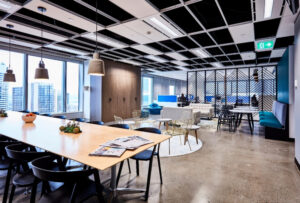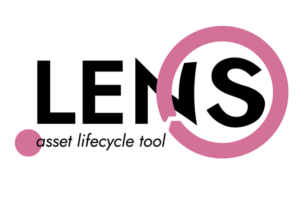Earth Day plea for businesses planning to downsize: don’t send unwanted desks to landfill
Fears that Britain could be left with a mountain of unwanted office desks, chairs and equipment have led sustainability experts to urge businesses to think before throwing them away.
Reports suggest as many as 73% of business leaders are considering downsizing their offices because of the pandemic. According to an estimate from Crown Workspace, this will lead to nearly half – 44% – of office furniture becoming redundant.
But now, on Earth Day, they are being reminded to consider sustainability before sending office furniture to landfill and adding to an already substantial commercial waste problem.
Businesses that fail to address the issue face increased costs and high rates of embodied carbon – a significant 45% of emissions are generated in the production of the products and materials we consume. Office furniture includes materials like plastics and textiles, notorious for their impacts on the environment.
Ann Beavis, Head of Sustainable Development at Crown Workspace, said: “We are seeing a lot of businesses either downsizing their office or maintaining existing offices at just 50% occupancy, with fewer desks and more collaborative spaces. This mass workplace transition is likely to have huge impacts, not least on carbon emissions and waste.
“There is always an opportunity to minimise waste and maximise value, whether that’s remanufacturing or repurposing furniture, or donating it to an organisation in the local community. We have found that purchasing used rather than new furniture can also have considerable cost and carbon savings – 40-80% in both cases.
“The statistics are clear; we cannot allow nearly half of the UK’s office furniture to end up in landfill.”
Five top tips to responsibly prepare the office for a post-covid world:
- View any unneeded equipment as a resource, not waste.
- Use a waste hierarchy for office clearances, this will help prioritise options to reuse furniture and equipment.
- Ensure collaboration across the business between the facilities, procurement and sustainability teams.
- Embed the principles of a circular economy within your office, in the design, procurement, operations, and end-of-life equipment.
- Include embodied carbon (the emissions from producing goods and materials) alongside cost in your business case.
To read Crown Workspace’s full report on carbon-friendly workplace transitions, produced in collaboration with Business in the Community (BITC), please click here!
Related stories
Creating an irresistible workplace is crucial for attracting and retaining top talent. Here are ten tips than can help make your business highly appealing to employees 😊
In our latest blog, we delve into asset management and the circular economy, and introduce to you our asset lifecycle tool, LENS, designed to provide you with a clearer insight of the assets within your estate.
For the third consecutive year, we have provided carbon neutral moves for all clients, meaning all emissions from fleet, packaging, staff travel, and office use have been offset through the purchase of carbon credits, in line with the best practice standard PAS2060.
























